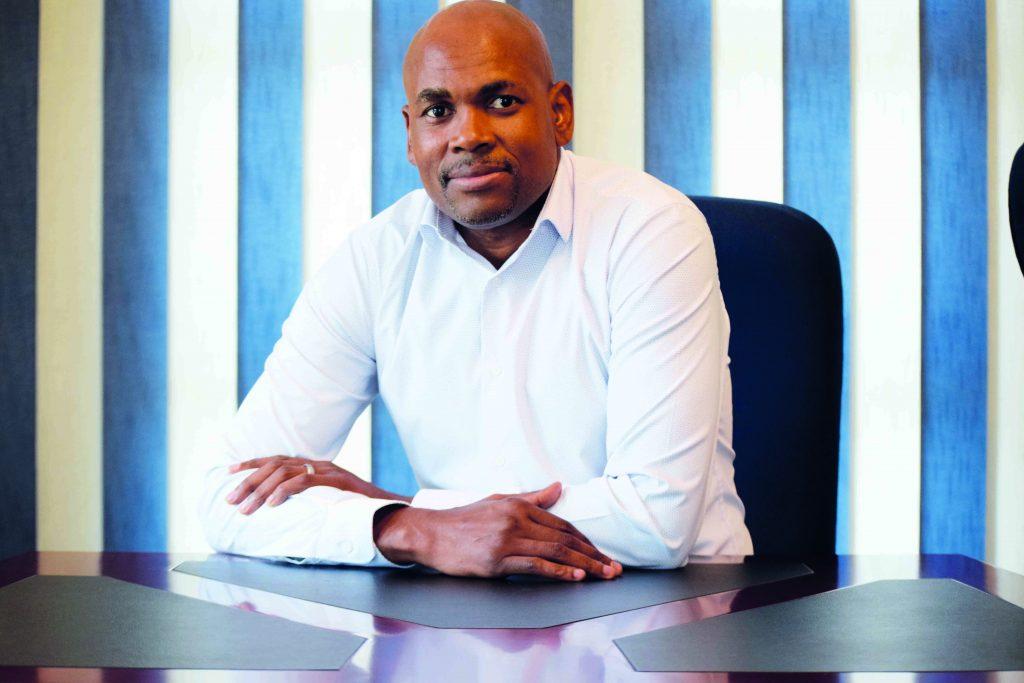Africa-Press – Lesotho. EVEN at a young age, Relebohile Sefako has always been fascinated with the concept of making money. His father, who went on early retirement as a police officer, ran a grocery store in Ha-Thetsane in the 1980s.
And so at very close range, he would see how his father would buy goods in large quantities and sell for a profit. It was a decent family business that ensured they enjoyed an average life in the city.
But beyond maintaining the family, the venture planted a seed in young Sefako – to run his own businesses later in life. It was no surprise then that when he was a student at the University of Cape Town (UCT) in the late 1990’s, Sefako ventured into business although at a very rudimentary level.
Here was a Mosotho child, some 1 100km away from home, who was running a “successful” tuck-shop at the campus. He would sell sweets – bars of chocolates and other delicacies – to fellow students.
That business thrived, thanks to the lessons he had imbibed years back at the family shop in Lesotho. “I understood the concept of making money,” he says.
When he completed his Electrical Engineering degree studies at UCT, Sefako came back home. He thought he had the world at his feet. As an engineer, Sefako got a job at the Lesotho Highlands Development Authority (LHDA), which was the employer of choice at the time.
He earned a good salary and had very little family obligations. And yet he still ran other side businesses to “make more money”. Sefako, together with a friend, ran a small money lending business in Maseru.
The business made decent profits. It was that friend who first told him about Sekhametsi Investment Consortium. However, the friend never invested in Sekhametsi.
Some 15 years later, his wife sold some of her shares for a couple of millions. “There was a lot of scepticism,” he says. When it came to putting in his money to buy the shares, Sefako also had big doubts about the whole venture.
“Am I really parting with my money? For what? So I paid half of what I had pledged, just in case I lost.
” In the end, what Sefako put in as an investment was money that he was “happy to lose”.
At that time, there was a general sentiment that “Basotho things” never work and that Basotho could never work together in business. The end result would be constant fights that often upended businesses.
It was these sentiments that stirred deep feelings of scepticism within Sefako when he was about to invest. And yet, he still felt a certain urge to “throw the fishing line” into the water.
The very thought of owning a small chunk of Vodacom shares was too enticing to let go. There were very few cellphones then but still he knew deep down that this investment represented the future given the technological trends elsewhere.
“I was putting a hook into the water and felt that if I catch fish, I catch fish and if I lose, I lose.
” And so in July 2000, Sefako bought his first shares in Sekhametsi. There was a long wait for dividends.
But as the night is followed by daylight, the dividends eventually came. He has never regretted the decision to invest. Sefako has been serving as a board member of Sekhametsi since December 2, 2019.
Sefako’s eyes light up when he speaks about creating wealth. Half of Lesotho’s 2 million people are living in abject poverty with 75 percent of the population either poor or vulnerable to poverty, according to a 2019 World Bank report.
Growing up in Thetsane, Sefako saw at close range the dehumanising effects of an average life in Lesotho. It is a life he would never want any Mosotho to experience.
“We should all strive to be wealthy,” Sefako says nonchalantly.
“The worst thing that can happen to ourselves is to be poor mentally and lead an average life.
” This is a message that Sefako constantly pushes without any sense of guilt. For him, being wealthy is the only way.
Like Mahomed Yunus, a businessman and banker, his dream is to consign poverty “to the museum”. He says that his dream is to see “future generations going to the museums ‘to see poverty’.
There they will see how people used to live in the past. That future generation will wonder how people lived like that in the past”. “That’s what drives me.
We should all strive to be wealthy. ” Sefako believes in the power of collaboration if we are to roll back the frontiers of poverty (of average life).
“If we come together we can conquer and eradicate poverty.
” For him it’s a generational mandate. He says his new generation, driven by exciting technological innovations, must now take up the baton and fight poverty.
As a proud Mosotho “boy”, Sefako says there is absolutely no reason why Basotho should be living an average life. “We have an excellent work ethic and have a culture of getting things done.
He cites the age-old tradition of “mpate-sheleng”, a programme in which every villager contributed a “shilling” – a 10 cent coin – to cover funeral costs.
By pooling resources together, things would get done. That is the spirit that Sefako says we need to tap if we are to consign poverty to the museums. Sefako says it is Basotho who form the backbone of the South African citrus fruit farms in Cape Town.
“We have 80 000 Basotho who are working on the farms. A typical Mosotho’s productivity is often five times that of a South African.
We work hard and there is absolutely no reason why we should remain poor. ” All what Basotho need is guidance on how to do things. “If you lead them and guide them, they will get things done.
They can achieve anything. ” Sefako cites the wool and mohair and textile sectors in Lesotho. The ventures, generally identified as Basotho-owned and driven respectively, have generated fabulous wealth for Basotho and sent thousands of children to school.
Sefako is not shy to state what he thinks he brings to the board – radically-organised thinking. “I think differently and do things differently,” he says.
That might sound arrogant and pompous but Sefako says if we keep doing things the same way as before we will end up exactly where we are. “All I do is challenge the norms.
Who said the chicken can’t fly? Probably it can, only that it hangs around with lots of chickens. ” Once it begins to hang out with eagles, then it will realise that it indeed It can fly, he says.
It is an alluring allegory. All that Sefako wants is to do things differently at Sekhametsi. That starts with having expansion plans to take Sekhametsi beyond the borders of Lesotho.
“There is no reason why Sekhametsi cannot go beyond the borders of Lesotho.
We must go global. ” “I want Sekhametsi to be the partner of choice worldwide. When someone thinks of investing in Lesotho, they must think Sekhametsi.
When they think of investing in SADC, they must think Sekhametsi. When they think of investing in Africa, they must think Sekhametsi. ” He says that will require a complete overhaul in thinking patterns at board level.
He says they currently have investors, who are the co-founders of Sekhametsi, who are now in the twilight of their careers, age having taken its toll.
The result is that they might be a little bit “conservative in their thinking, and understandably so”. “They are in a comfortable position, and with comfort, one might relax and not think of tomorrow.
” Sefako says the new generation understands their new mandate and are prepared to take a risk.
“One can’t be comfortable as an investor. We need to up our game and need to look beyond the sentiments of shareholders, for their benefit. ”
“We need to give an injection to the ‘shareholders’; it might be painful but that might increase their lives by a further 10 years.
Sefako, who is 49, admits that while he might see things differently with other shareholders, they all want a common goal – increasing value for shareholders. The board currently has eight members.
For More News And Analysis About Lesotho Follow Africa-Press






